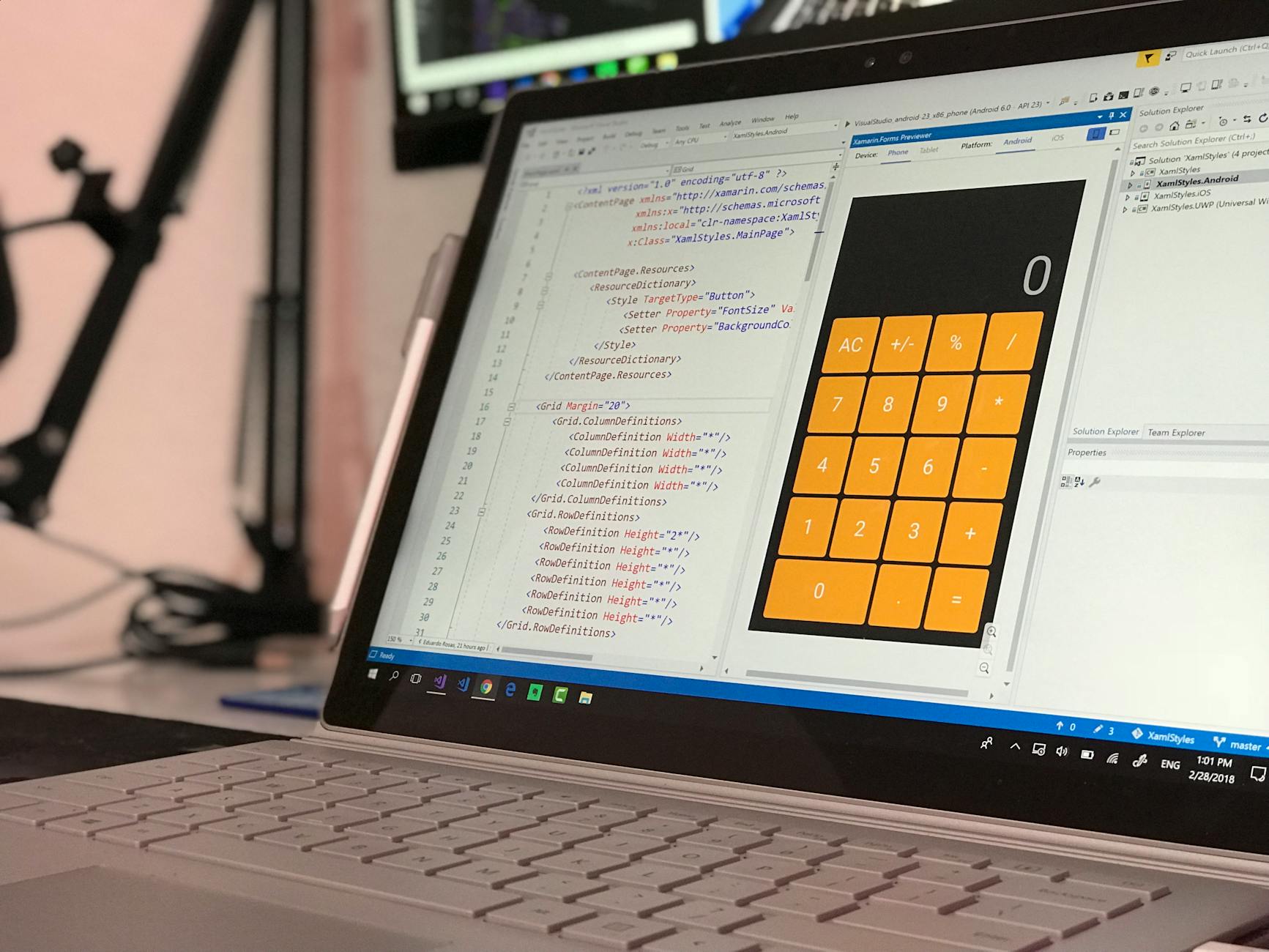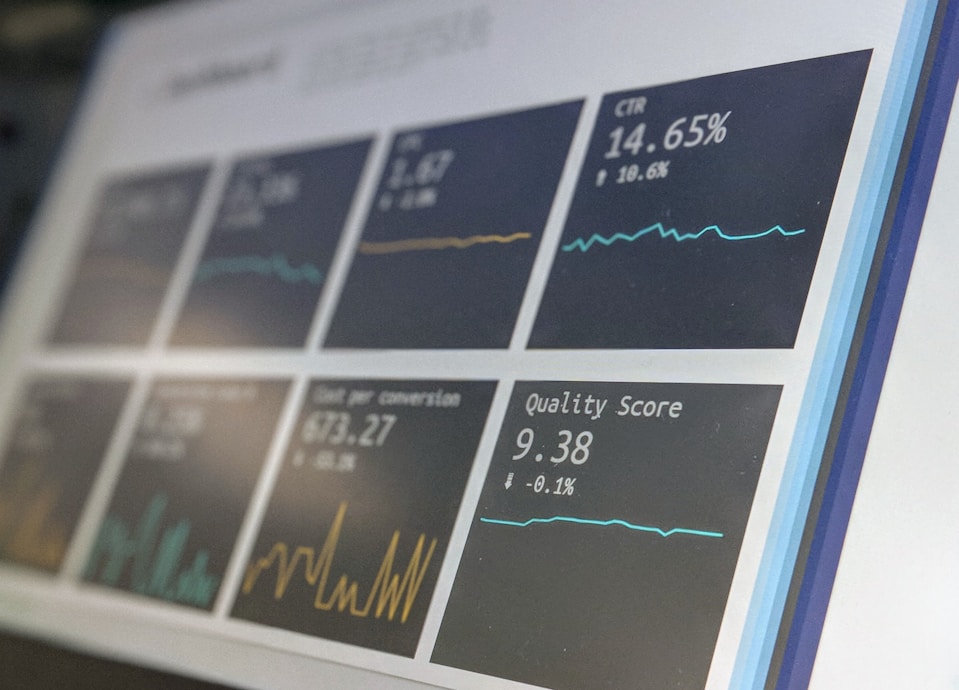Hospital management isn’t an easy undertaking, which is why healthcare professionals need all the help they can get from software systems that can ease their workload. The pandemic has forced businesses in every industry to embrace more digital initiatives, and the medical sphere is no exception.
Thus, more and more organizations are developing healthcare software that can help manage internal processes and optimize workflows. After all, every facility’s end goal is to deliver patient care in the best possible manner and ensure everything is running smoothly.
One way to do that is by implementing a hospital management system (HMS), and today that’s precisely what we’re going to discuss. Specifically, we’ll cover:
- Hospital management software benefits
- Must-have hospital management system features
- Top considerations before starting development
- Emerging trends in hospital management systems
- How to introduce new software to your medical team
Let’s get started.
Why You Need a Hospital Management System
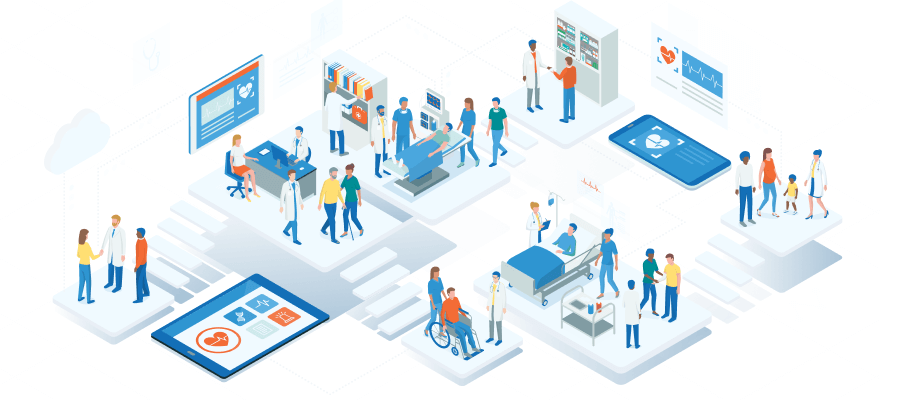
We can already hear you asking: first, tell us — what is a hospital management system? The meaning is actually hidden within the term itself.
A hospital management system is basically a type of software that centralizes all data from various medical departments to simplify the process of running a facility. All in all, it’s a tool that serves as a central source of information for doctor, patient, pharmaceutical, laboratory, payment, and even insurance data.
Typically, a hospital management system is web-based, but often has a mobile app version so that medical professionals can have access to all the needed information even when they’re on-the-go.
Learn about the Essentials of Healthcare App Development
As you can imagine, there are extensive benefits of a hospital management system. Some of the most profound ones, however, are the following:
- Improved operational efficiency
- Better quality of patient experiences
- Fewer errors in admin documents
- Reduction of costs
Yet, these advantages can only be observed if your chosen hospital management software possesses all of the must-have features a healthcare professional might be looking for. So, let’s take a look at the attributes of a well-functioning hospital management system.
User-Driven Approach
Watch our webinar and learn the top ways of reducing poor user satisfaction, low adoption rates, and decreased loyalty.
Hospital Management System: Must-Have Features
While the needs of every hospital might differ and you should look for features that cater to your unique requirements. There are several functions that, in our experience, are a must for modern-day medical practices.
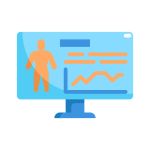
Patient Records
First of all, hospital management systems need to be able to work with a database of electronic health records (EHR) of your patients. That is to say, they must store as much pertinent patient data as possible. For instance, patient registration, medical history, insurance information, prescribed medications, lab test results, financial details, and the like.
In short, it should help you keep track of the most important patient information electronically so that it can be pulled up whenever needed.
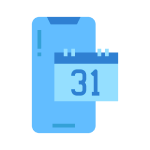
Scheduling
Your chosen solution must help patients seamlessly schedule appointments at your hospital and keep the timetable up-to-date so that staff is always aware of any upcoming visits.
Ideally, hospital management software should allow the scheduling of consultations based on a doctor’s availability as well as that of any necessary medical equipment. That way, there is bound to be less problems with appointments, and everything can function like clock work.
Additionally, some find it useful when the solution can automatically notify medical professionals of any cancellations as well as send reminders to patients about an impending appointment or that it’s time to come in for a checkup.
Find out how we performed a Dental Appointment Scheduling Integration with a PMS
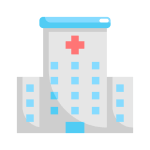
Facility Overview
Another important use case of a hospital management system is in providing an overview of the entire medical facility. Specifically, the hospital bed occupancy and availability of spaces for specialized treatments.
After all, if your team can’t keep track of what’s going on in the hospital at any given point in time, it’ll be extremely difficult to organize its operations. Thus, resulting in employee frustration and poor patient care.
Learn why Patient-Centricity is Important for High Quality Care

Staff Management
It is imperative for your hospital management information system to have details about the staff working at your facility. Concretely, the names, job titles, fields of specialization, personal information, vacation times, and other employment-related documents.
Being able to reach employees at critical times like when a patient’s condition might be deteriorating is crucial for a healthcare organization. You don’t want your staff wasting valuable minutes looking for the needed details. So, don’t underestimate the importance of this feature.
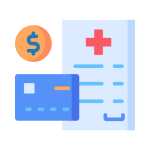
Insurance Administration
Chances are high that many of your patients rely on insurance companies to pay for the medical services you deliver. Thus, it’s important to be able to manage any insurance information an individual may provide you with.
Moreover, besides storing policy-related details, some hospital management systems may even integrate with insurance verification solutions to effectively check a patient’s eligibility.

Laboratory Supervision
If your clinic has its own laboratory, it’s a good idea for the management system to also provide hospital stuff with access to lab test results. That way, they can be automatically synced with patient profiles, and doctors can be notified so that the appropriate treatment can be prescribed.
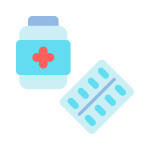
Pharmacy and Prescription Management
Keeping track of your pharmaceutical inventory levels is also a crucial feature to look out for in a hospital management system. You want to ensure that all of the prescription drugs or other medical supplies you may need are always available. So, a drug inventory management tool that helps monitor stock can be truly helpful.
Moreover, since a hospital management system also stores patient data, it can quickly send proactive alerts if any incompatible medication is prescribed. Thus, helping physicians save time and avoid potential issues.

Financial Accounting
As the name suggests, this feature is all about managing your company finances. Whether issuing bills for payment or dealing with invoices for costs incurred — a financial accounting function can take care of it all.
Running a hospital can be stressful, there’s no need to add finance-related nuances into the mix. So, make sure your chosen management software can centralize and streamline any money-related work you may have.

Mobile App
Implementing a mobile version of your hospital management software is practically non-negotiable in the modern day. Medical practitioners are often on-the-go and need to have access to their patients’ information even when there is no computer nearby.
So, while this may not be a distinctly separate feature, we’ve got to emphasize the importance of having a mobile application for your hospital management system. You can choose to build an iOS solution, an Android tool, or instead go for the cross-platform approach, but don’t postpone this important aspect.
Find out how we Redeveloped a Medical Reference App

Integrations
Finally, very few pieces of software can function to their utmost potential without proper integration capabilities. Not only might you already have some IT platforms in place that you’d like to keep using, but you may also like to be able to integrate with future innovations seamlessly.
Thus, it’s important for your hospital management system to connect to other business apps like CRMs, partner solutions, contact centers, and so on. After all, you wouldn’t want to miss out on any powerful software combinations that can improve your workflows even further.
Learn how we Integrated a VoIP Solution with a Powerful CRM
Key Points to Consider Before Developing an HMS
Now that you know the main features to be on the lookout for when searching for your hospital management system, it’s time to discuss some points you should know before starting development and implementation.
Lack of Developers
Find out how to deal with the lack of IT talents without compromising project delivery.
User Friendliness
When you work in healthcare, you’re constantly dealing with people who might be under a high level of stress, whether it’s patients who are worried about their wellbeing or doctors who are trying to cure someone. Naturally, you don’t want to add to that burden.
So, the hospital management software you implement must be helping everyone involved and delivering a good experience, not becoming an unnecessary nuisance. Hence, it’s important to pay attention to the user friendliness of your solution when you design a healthcare UI/UX.
Overall, just make sure you understand your users. In this case, it’ll mainly be the staff at your hospital, but some patients may also interact with elements of the management system. Also, present clear visuals and make the navigation intuitive so that people don’t have to spend too much time figuring out where the needed feature is hidden.
Learn about the Importance of Having a UX Strategy
Data Security
Data safety is important for protecting the integrity of any organization, but particularly that of a medical facility. Patients entrust you with the most important thing — their health and information about it. Losing that trust can be detrimental to the business.
As hospital management systems garner and process a lot of data, you’ve got to make sure it’s being kept safe. Consider using encryption, conducting regular risk assessments, or even adding blockchain-powered tools to improve security. In the long run, you’ll be grateful for having been careful.
Discover how we built a Blockchain–Based Intrusion Detection System
Regulatory Compliance
How exactly you ensure that the personal health information of your patients is safeguarded isn’t always up to you. There are regulations in place that the application you’re implementing must adhere to. Of course you can enact more safety measures, but you certainly shouldn’t do less.
HIPAA, FHIR, and HL7 are just some of the directives you’ll likely have to follow. So, make sure you’re working with a software vendor that has experience in developing compliant apps. It’ll make the entire process a lot simpler and allow you to rest easily knowing you’re doing everything that’s expected from you by law.
Find out How to Develop a HIPAA-Compliant App
Modern Hospital Management System Trends
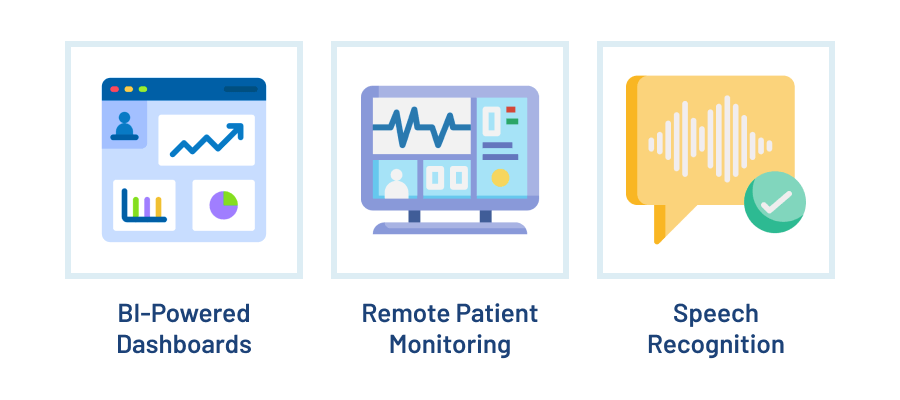
BI-Powered Dashboards
In order for the hospital management system to deliver the needed information to its users smoothly, it will generate reports and dashboards that succinctly summarize all the relevant insights.
However, in recent years, companies are growing interested in having more than static charts and graphs to illustrate data. So, they turn to business intelligence solutions that can deliver easy-to-interpret visualizations for quick analysis and informed decision-making.
So, if you consider adding BI to your hospital management system, you’ll be able to gain more user-friendly dashboards with interactive elements that deliver performance analytics in a highly straightforward manner.
Remote Patient Monitoring
Another emerging trend on the healthcare arena is remote patient monitoring which is enabled through the use of the Internet of Medical Things (IoMT).
Essentially, it refers to the use of connected devices to capture, monitor, and transmit health-related data from patients to healthcare providers. Thus, allowing for assessment and provision of recommendations even when the patient isn’t at the hospital. Typically, this includes wearables, hearables, or even ingestibles.
If you’d like to leverage this innovation for your facility, it’s worth integrating it with your HMS. That way, any medical records garnered from patients remotely can be immediately attributed to their respective profile within your database.
Take a look at how we developed a Remote Patient Monitoring Tool for Urology
Speech Recognition
Lastly, speech recognition technology is also something healthcare providers might want to look into. You see, thanks to its ability to convert spoken word into commands or textual entries, it can be a great tool for medical staff to rely on.
For example, it can allow healthcare professionals to add patient notes, diagnoses, or treatment plans to a management system through dictation, without having to spend time typing. Thus, reducing levels of administrative work and freeing up time for proper patient care.
Discover more Speech Recognition Uses in Enterprises
How to Introduce New Software to Your Hospital
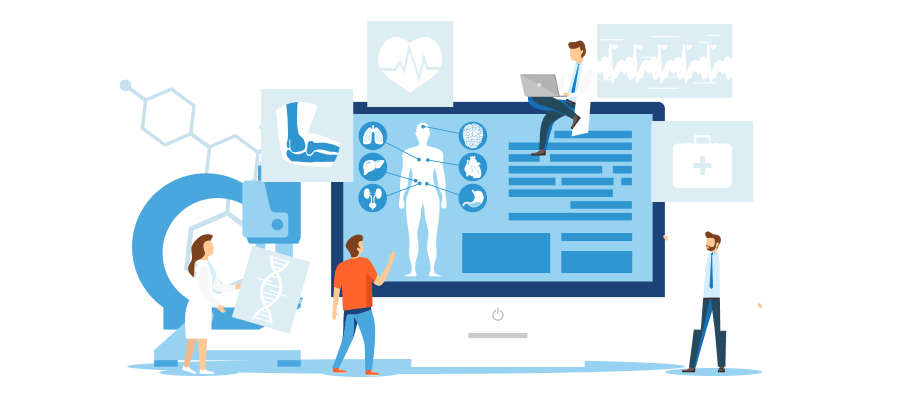
Before you start wondering how to develop a hospital management system and initiate a software vendor search, it’s important to think about the way you’ll introduce it to your medical team and hospital administration. While it may seem like a far-off issue to deal with at this stage, it really is not. You’ll see why in a minute.
1. Keep Your Staff Informed at All Times
Before you embark on hospital management system development project, it’s a good idea to discuss the undertaking with your team. Ideally, you want to get their input about the features they may like, the way they usually use similar software, and so on.
Additionally, you want to explain the benefits of implementing this new solution for them. Why should they care? How will it make their work life easier? In our experience, if you involve the end-users of your new software at an early stage of the development process and have the necessary discussions with them, it’ll be a lot easier to introduce the tool once it’s ready.
2. Demonstrate How to Use the Software and Offer Support
Once the hospital management software is developed, it’s imperative to hold demonstrations, even if briefly, to illustrate how it should be used properly. Take the time to showcase the most useful features and make it clear that there’s support available as the users get the hang of it.
Without a proper demonstration and placing emphasis on the value of the new solution, it’ll be harder to get your staff on board and actually using it. So, don’t underestimate the value of this step.
3. Consider Adding Rewards for Usage
This last point may not be for everyone, but it’s definitely something worth considering. You see, when your new software is implemented, it’s important to get all kinds of people interested in actually using it. Especially those that may be less tech-savvy and might be hoping to avoid that.
One way to do this is by offering rewards for continuous usage of the solution to your employees. Something as simple as gift cards can go a long way, but of course feel free to brainstorm other rewards that your team might appreciate. By doing this, you’ll get an influx of users onto your system, and before long, relying on it will become second nature to them.
Ready to Implement a Hospital Management System?
We’ve covered a lot of ground today and you might need a minute to think about whether the design and implementation of a hospital management system should be your next priority. Of course, everything depends on your unique business situation and other software you may already have in place.
However, if you don’t want to postpone the implementation or have any questions you’d like to address, don’t hesitate to reach out to Velvetech. We provide an extensive range of healthcare software development services and would be happy to schedule a consultation with our experts.






















